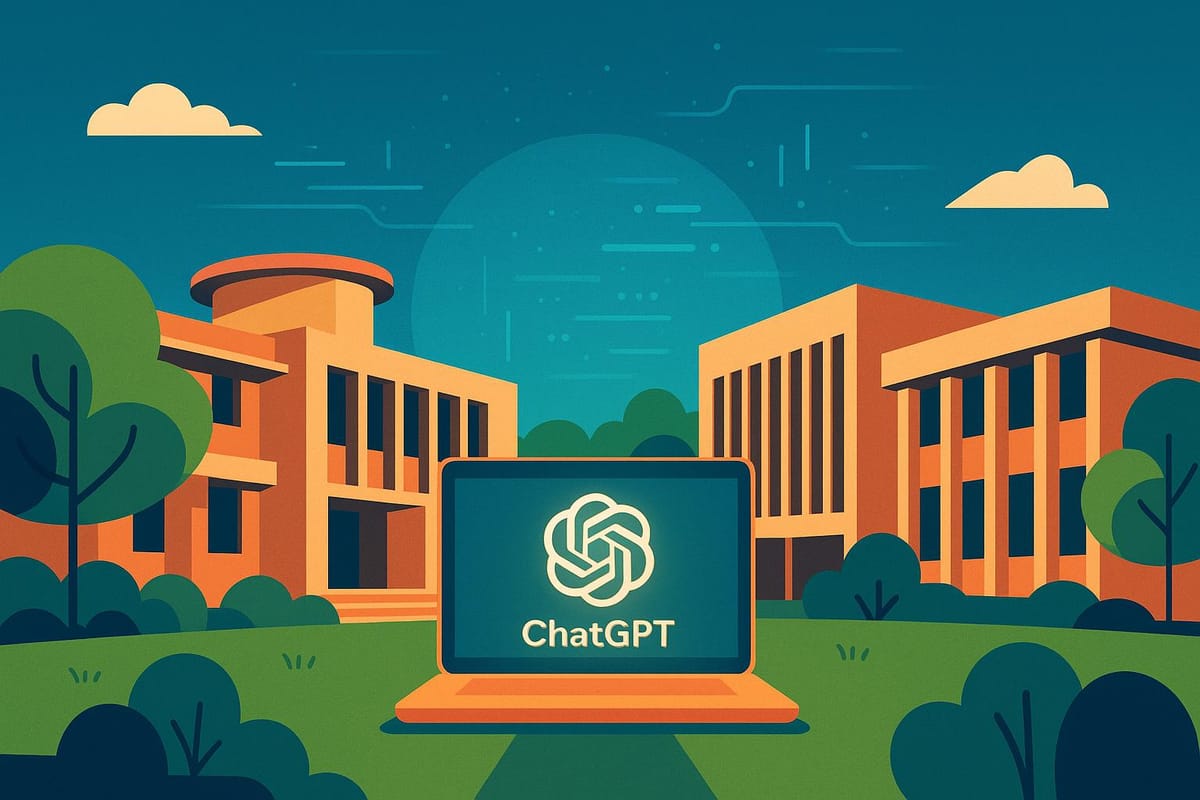OpenAI Unveils India-first Learning Accelerator in Collaboration with IIT Madras
OpenAI launches India-first Learning Accelerator, partnering with IIT Madras with $500k and distributing ChatGPT licenses.

OpenAI has launched its India-first Learning Accelerator initiative, aimed at transforming education for students and educators across the country. The program was announced in New Delhi on August 25, with the company emphasizing its commitment to leveraging artificial intelligence (AI) for enhancing learning outcomes and fostering innovative teaching methods.
"Learning is a top use case of ChatGPT for students and adults across India", said Leah Belsky, OpenAI's Vice President of Education, during the launch event. The initiative includes a new research collaboration with the Indian Institute of Technology (IIT) Madras, backed by a $500,000 grant from OpenAI. The research will investigate ways AI can improve education, drawing insights from cognitive neuroscience.
A Tailored Approach for India
OpenAI’s accelerated focus on India stems from the country's educational diversity, which includes over 300 million students ranging from prestigious institutes like IITs to rural schools with limited resources. Recognizing this, OpenAI plans to further adapt its tools to the Indian context.
"ChatGPT’s Study Mode is actually built to give really high-quality answers on Indian curriculum. Over time, you will see us advance the way in which our models speak to Indian students in local languages and on local teaching", Belsky explained. She added that OpenAI envisions its AI evolving into a personal, lifelong tutor for students while also freeing up educators to focus on teaching rather than administrative tasks.
Empowering Educators and Students
A central component of the Learning Accelerator is the distribution of approximately 500,000 ChatGPT licenses over the next six months. These licenses will be accessible to educators and students through partnerships with Indian organizations, including the Ministry of Education, the All India Council for Technical Education (AICTE), and ARISE.
"The reason why we are doing that is because education is central to our mission", Belsky stated. She emphasized that tools like ChatGPT could address various needs, from helping institutions manage administrative tasks to supporting lesson planning and student engagement.
Raghav Gupta, recently appointed as OpenAI’s Head of Education for India and the Asia Pacific, elaborated on the program’s goals. "The idea is that we provide this technology to teachers so they can start leveraging it in what they are doing with students, lesson planning, student engagement, assignments, and so on", he explained.
Adapting to Local Needs
OpenAI’s team conducted extensive on-the-ground research in India, spending weeks with parents, students, and teachers. A key insight from this research was the demand for ChatGPT to function more as a tutor than merely an answer machine. Parents, in particular, sought AI tools tailored to the Indian curriculum, including preparation for IIT and CBSE exams.
"Parents wanted students to be able to use ChatGPT more like a tutor and less like an answer machine", Belsky noted. OpenAI aims to meet these needs by aligning its tools with local educational standards and integrating regional languages for broader accessibility.
Building AI-Driven Education Infrastructure
Beyond individual users, OpenAI envisions AI as critical infrastructure for educational institutions. According to Belsky, AI can enhance how institutions operate while also transforming teaching and research practices, making them more efficient and accessible.
OpenAI’s Learning Accelerator marks a significant step toward reshaping the role of AI in education, with India serving as a testing ground for innovations that may have global implications. As the initiative unfolds, the collaboration with IIT Madras and partnerships with government bodies will likely play a crucial role in determining its long-term success.

